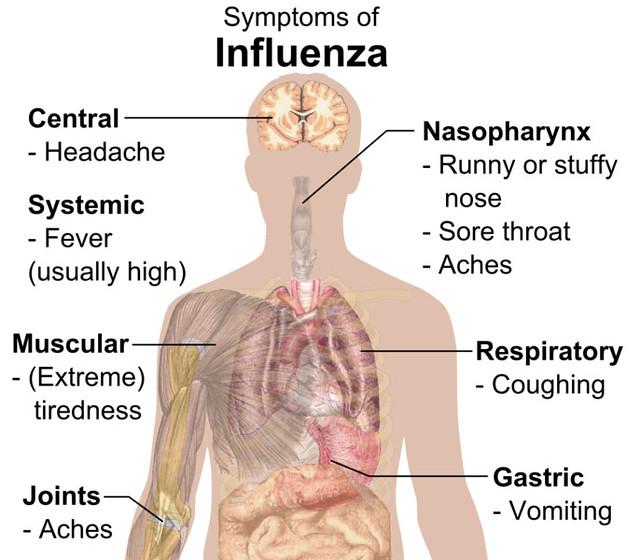
Hemolytic uremic syndrome (HUS) is a rare but serious condition that affects the blood and blood vessels. It is most commonly caused by an infection with certain strains of E. coli bacteria, specifically E. coli O157:H7. This infection can lead to the destruction of red blood cells, low platelet count, and kidney failure. Recognizing the symptoms of HUS is crucial for prompt diagnosis and treatment.
In this article, we will explore the symptoms of hemolytic uremic syndrome and provide an in-depth analysis of each one.
1. Bloody Diarrhea
One of the hallmark symptoms of HUS is bloody diarrhea. This occurs as a result of the damage to the lining of the intestines caused by the E. coli infection. The blood in the stool may range from bright red to dark and tarry, depending on the severity of the condition. Bloody diarrhea is often accompanied by abdominal cramping and pain, which can be severe.
If you or a loved one experience bloody diarrhea, especially if it is persistent, it is important to seek medical attention immediately, as this could be a sign of HUS.
2. Decreased Urination
Another symptom of hemolytic uremic syndrome is decreased urination, or oliguria. This occurs as a result of the damage to the kidneys caused by the E. coli infection. The kidneys may not be able to properly filter waste products from the blood, leading to decreased urine output.
Decreased urination can be a sign of kidney failure, a serious complication of HUS. If you notice a decrease in urine output, it is important to seek medical attention as soon as possible.
3. Fatigue and Weakness
Patients with hemolytic uremic syndrome often experience fatigue and weakness. This can be a result of anemia, a condition caused by the destruction of red blood cells. Anemia can lead to a decrease in oxygen delivery to the body’s tissues, resulting in fatigue and weakness.
If you or a loved one experience persistent fatigue and weakness, especially in conjunction with other symptoms of HUS, it is important to seek medical attention for further evaluation.
4. Pale Skin
One of the visible signs of anemia in patients with HUS is pale skin. Anemia caused by the destruction of red blood cells can lead to a paleness of the skin. This occurs as a result of the decreased oxygen levels in the blood, which affects the color of the skin.
If you notice a significant paleness in yourself or a loved one, especially in conjunction with other symptoms of HUS, it is important to seek medical attention for further evaluation.
5. Bruising and Bleeding
Due to the low platelet count caused by HUS, patients may experience increased bruising and bleeding. Platelets are responsible for blood clotting, and a low platelet count can lead to easy bruising and prolonged bleeding after minor injuries.
If you notice unexplained bruising or bleeding, especially in conjunction with other symptoms of HUS, it is important to seek medical attention for further evaluation.
6. Seizures
In rare cases, patients with hemolytic uremic syndrome may experience seizures. This occurs as a result of the damage to the brain caused by the E. coli infection. Seizures can be a sign of severe neurological complications of HUS and require immediate medical attention.
If you or a loved one experience seizures, it is crucial to seek medical attention immediately, as this could be a sign of a serious complication of HUS.
7. High Blood Pressure
HUS can also lead to high blood pressure, or hypertension. This occurs as a result of the damage to the blood vessels caused by the E. coli infection. High blood pressure can further exacerbate kidney damage and other complications of HUS.
If you or a loved one experience persistent high blood pressure, especially in conjunction with other symptoms of HUS, it is important to seek medical attention for further evaluation.
8. Abdominal Pain
Patients with HUS often experience abdominal pain, which can range from mild to severe. This occurs as a result of the damage to the intestines and kidneys caused by the E. coli infection. Abdominal pain is often accompanied by other gastrointestinal symptoms, such as nausea and vomiting.
If you or a loved one experience persistent abdominal pain, especially in conjunction with other symptoms of HUS, it is important to seek medical attention for further evaluation.
9. Swelling
Swelling, particularly in the face, hands, and feet, can be a symptom of hemolytic uremic syndrome. This occurs as a result of the decreased kidney function and the retention of fluids in the body. Swelling can be a sign of kidney failure, a serious complication of HUS.
If you notice significant swelling, especially in conjunction with other symptoms of HUS, it is important to seek medical attention for further evaluation.
10. Fever
In some cases, patients with HUS may experience a fever. Fever is the body’s natural response to infection and can indicate the presence of the E. coli bacteria in the body. Monitoring for fever and seeking medical attention if it persists is important in the diagnosis and management of HUS.
If you or a loved one experience persistent fever, especially in conjunction with other symptoms of HUS, it is important to seek medical attention for further evaluation.












